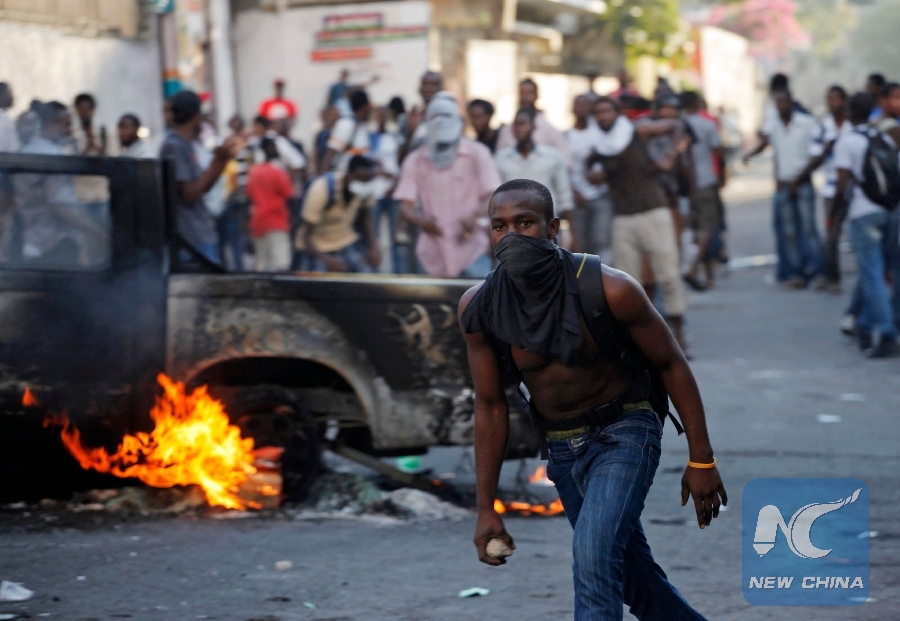
The file photo shows that a masked protester holds a stone near a burning vehicle during a protest in Port-au-Prince Feb. 4, 2015. (REUTERS Photo)
UNITED NATIONS, April 3 (Xinhua) -- UN High Commissioner for Human Rights Michelle Bachelet on Wednesday underscored the gravity of human rights situation in Haiti in terms of poverty, criminal activity, and judicial system weakness among other aspects.
At a Security Council meeting on Haiti, Bachelet said with about 59 percent of the population estimated to live below the poverty line, Haiti remains the poorest country in the Americas.
She added the Caribbean island country faces considerable economic and social difficulties, including limited employment opportunities, particularly for the youth.
Also, many Haitians do not have access to basic services such as health care, water, electricity and education, she said.
The grave humanitarian situation is exacerbated by Haiti's vulnerability to natural disasters, "with every earthquake and hurricane further impeding development and intensifying the already precarious living conditions of many," she noted.
Turning to the security aspect, Bachelet said in "underprivileged areas" of the capital Port-au-Prince, armed gangs are taking advantage of the limited presence of the state, and that competition between rival gangs has resulted in deaths, sexual violence and destruction of looting of houses.
She has observed increasingly violent unrest across Haiti since July, which killed at least 60 people, including members of the Haitian National Police, and injured many others.
Pointing to the weakness of the Haitian judicial system, Bachelet said over 75 percent of inmates are estimated to be in pre-trial detention -- on average for 1,100 days -- well over the limit set by national law.
Prolonged pre-trial detention contributes to extreme overcrowding and practices amounting to degrading and inhumane treatment, she added.
The UN rights chief stressed accountability should be considered as an effective measure to build trust in institutions, adding strengthening the bedrock of rule of law is a means to preventing further human rights violations and enabling sustainable peace.

